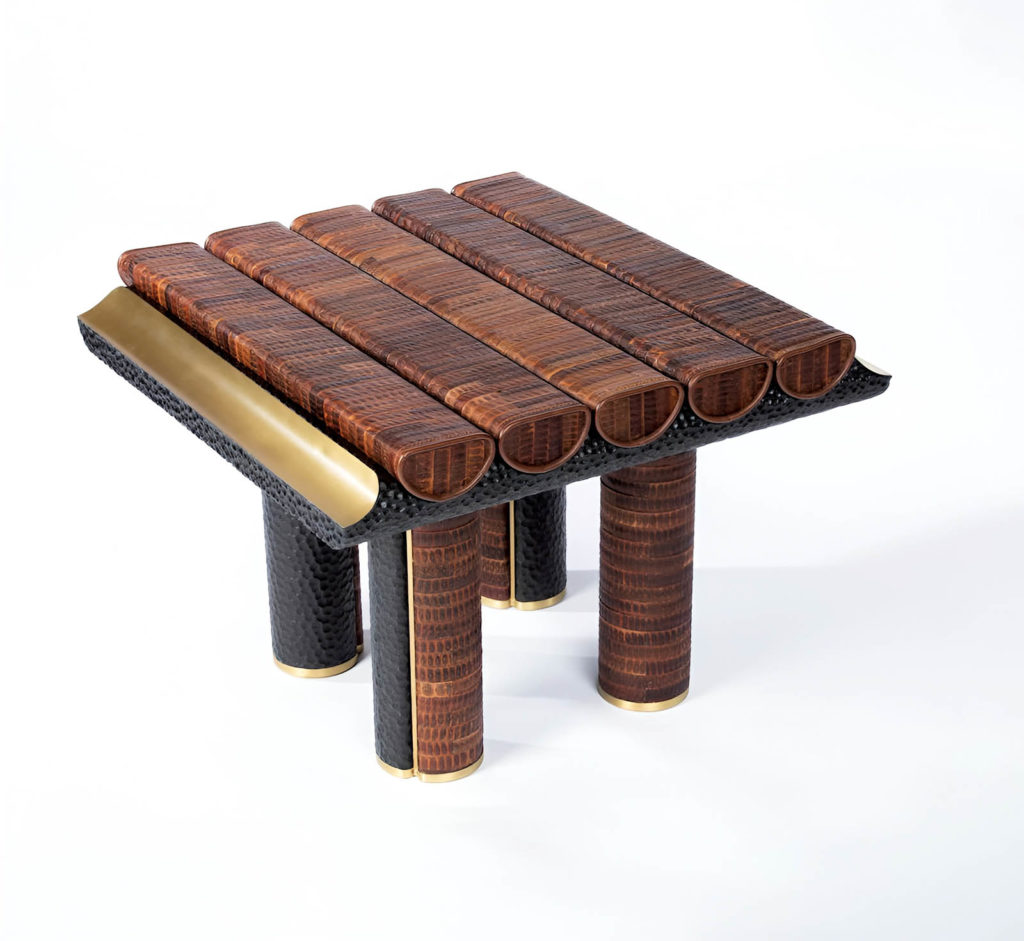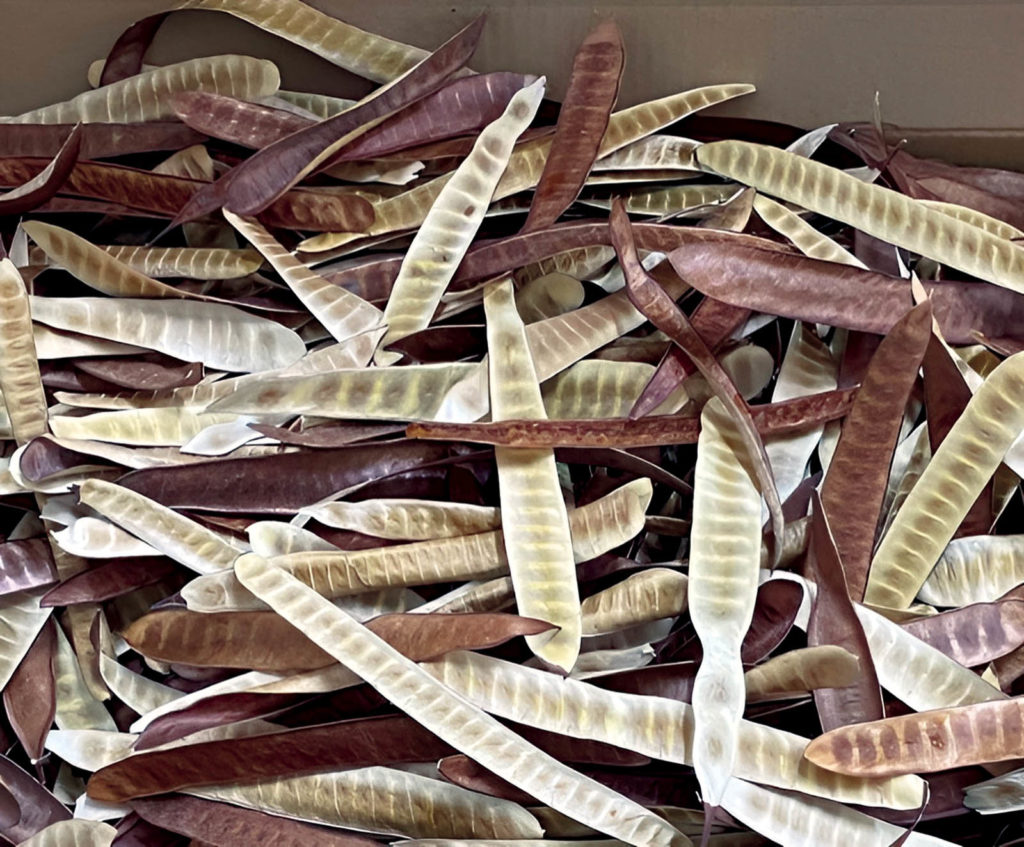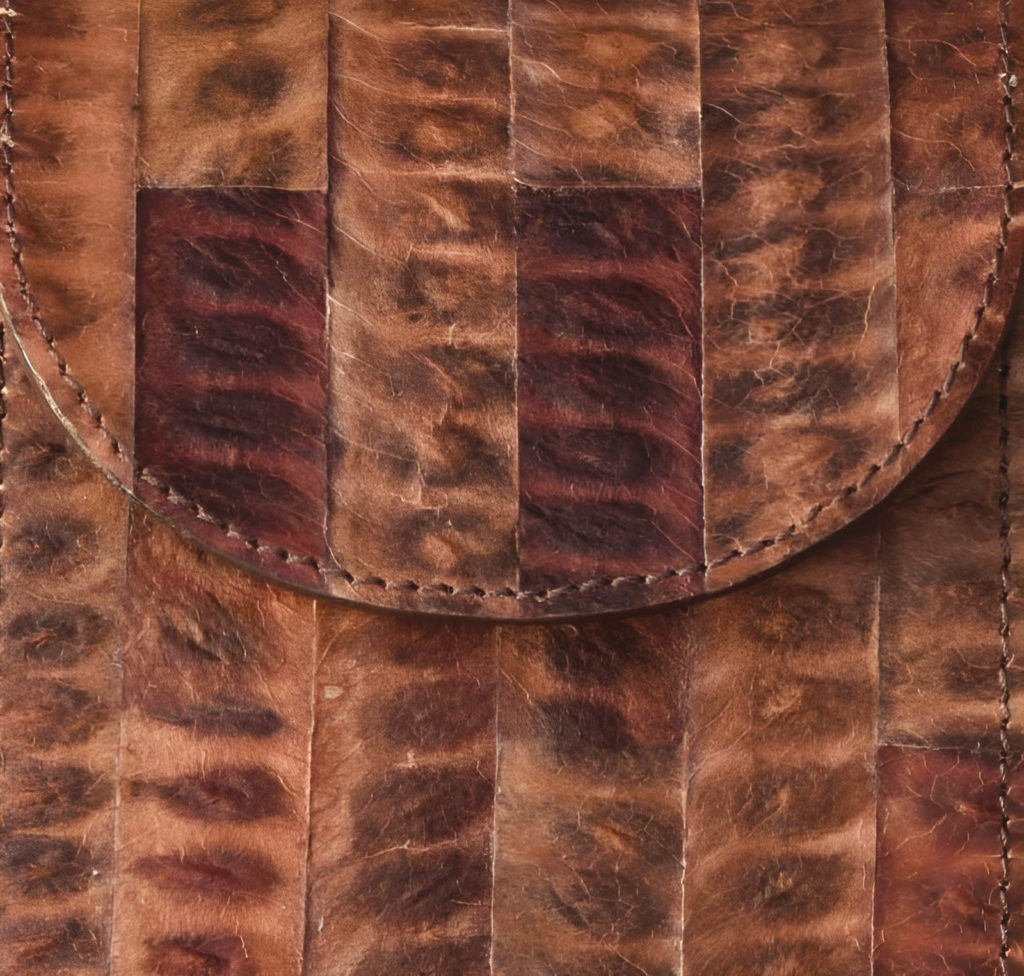
The latest member of the alternative textile family is called Leukeather and is made from dried Leucaena pods, a byproduct of existing agriculture.
Leucaena leucocephala, also known as river tamarind, is a small, fast-growing tree native to southern Mexico and northern Central America. While it’s considered an invasive species in Europe and parts of Asia, it has multiple benefits, as it grows fast, needs little water and improves soil fertility. Local farmers harvest and collect dried Leucaena pods from their existing farms, meaning no new land is needed. The pods are split to remove the seeds, which have antioxidant and anti-diabetic properties, and can be used to make medicine.

The pods are then soaked in oils and sun-dried to modify the plant fibers. After multiple repetitions of soaking and drying, the pods become soft and leathery. Once prepared, they are cut and assembled into modular strips and sheets for use.
In Leukeather, the pods themselves are what give the leather its exotic look, so it does not need to be embossed like many other leather alternatives.
And because the material is naturally waterproof, Leukeather does not rely on a plastic top layer.

 TEXTILES.ORG
TEXTILES.ORG


